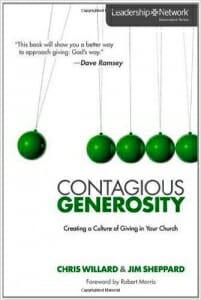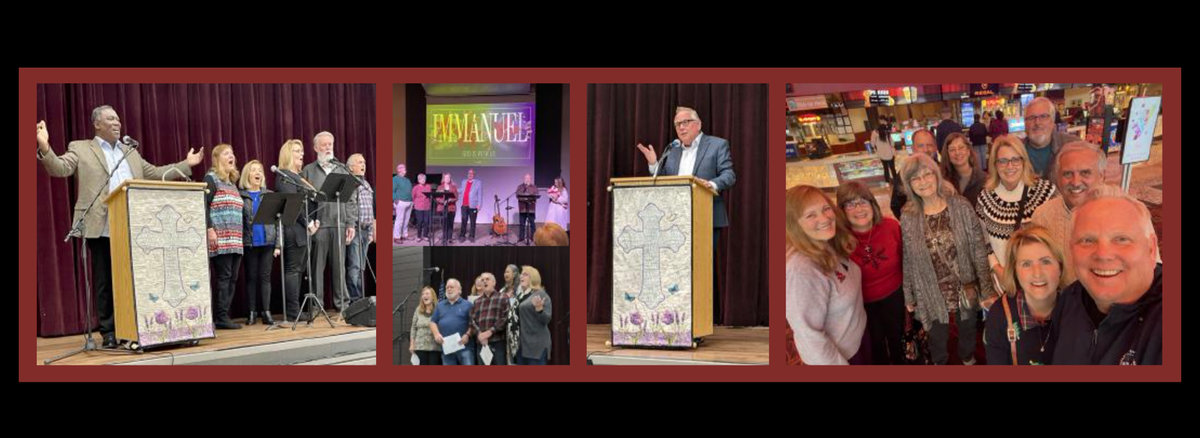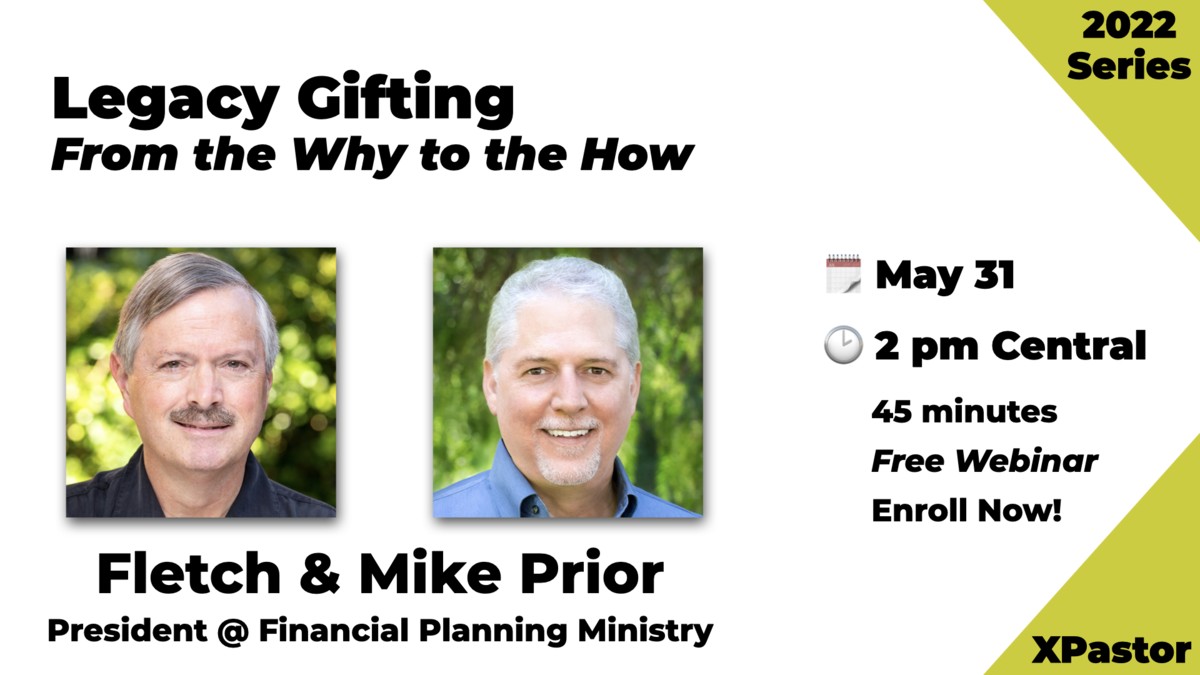 I recently read the book, Contagious Generosity: Creating a Culture of Giving in Your Church by Chris Willard and Jim Sheppard. I found this book to be inspiring and refreshing; it resonated with me in a deep way. Here I’ll share how this book impacted me and how we can apply it to our church community.
I recently read the book, Contagious Generosity: Creating a Culture of Giving in Your Church by Chris Willard and Jim Sheppard. I found this book to be inspiring and refreshing; it resonated with me in a deep way. Here I’ll share how this book impacted me and how we can apply it to our church community.
The vision statement of our church is “God has called us to be a community that is Gracious with our Love, Intentional with our Lives, and Generous with our Resources. The overriding theme that the book speaks to is that God has called our church community to be generous. As a church, we need to do more than just put the words on our letterhead and include it in our verbiage. The book states,
They wrongly assume that including the theme of generosity in their vision or preaching on generosity once a year will magically create generous people in their congregations. They lack a plan to create a culture of generosity, and the vision goes no farther than a closed door, staff meeting conversation. Instead culture must be shaped by intentional, systematic processes.
I believe there is a response required of us to change the culture of our church to one of generosity. Willard and Sheppard say, “If you want to see lasting transformation in your church, it begins with the culture. Culture is not neutral. If the culture is not right, it will be a headwind resisting almost everything you try to do. If the culture is right, it will be a tailwind accelerating everything you try to do.” How great it would be to not only have our financial obligations met, but to have a greater impact on our community and our world because of the generosity of those who attend our church.
Based on what I read in the book, there are a number of things that I believe we could do to get there:
1. We need weave the concept of generosity into the fabric of what we do.
We need to talk more about generosity at the offering time—this would include sharing stories of what God is doing with the resources that He has blessed us with. This needs to become part of our regular conversation. Currently we don’t always mention that it is offering time; instead, we just couch it into the prayer prior to the offering as a cue for the ushers to come forward.
2. Leadership needs to be aware of what people are giving.
As the authors state,
We have had numerous leaders tell us with pride that they don’t know what people give and never want to know! Hearing this makes us wonder what a trip to the doctor would be like if doctors weren’t privy to details about our health. How would a doctor know how to treat us, what medicine to prescribe and even what goal to have in mind, without knowing the state of our health? How effective would a coach be if he never noticed the needs or potential of his team or paid attention to the stats of the individuals he wants to recruit? What if a teacher never looked at the grades of his students to determine who needed extra attention and who was catching on quickly?
The culture in our denomination and in our community supports the idea of private giving, so it is not hard to understand why our church has adopted that same culture. Often a change in someone’s giving patterns can indicate either a positive or negative change in their life—one that we might not be made aware of any other way. I offer two quotes of Willard and Sheppard:
One of the most concrete expressions of spiritual growth or decline in a person’s life is not what a person says, how busy they are with church activities, or how many boards or committees they sit on but how they are stewarding the financial resources God has entrusted to them.
Giving is an external expression of an internal commitment. Therefore when someone gives to your church he is confirming that he has connected and is ready to move to deeper levels of commitment and engagement with the community.
Recently, someone made a significant contribution to our building project, and for the first time signed in for automated giving at a substantial level. Was this in response to something that was said at the Congregational Meeting? Was this an act of sacrificial giving that God has called them to? If we need to keep the giving private, we will never know the answers to these questions. We may be missing out on an opportunity to celebrate the spiritual growth that is happening in their lives.
3. Giving needs to be celebrated.
We celebrate many things in our church—baptisms, child dedications and church memberships, but we neglect to celebrate financial stewardship. Not unlike many other churches, we neglect our givers.
What would happen if we treated first time givers like we treat someone who is a first time guest that fills out an In Touch card? What if we sent a response to a first gift giver that would acknowledge and thank them for their gift? The thank you should not be just for the money that they have given, but for the trust they have put in leadership to steward the money well. What if we celebrate people who give large gifts and find out what God is doing in their lives? These are the types of stories, when shared, that have a contagious effect on those hearing them.
4. Staffing for generosity.
Willard and Sheppard suggest,
Someone on your staff, or a key volunteer leader, will have to step up and lead in this movement of generosity in your church. Someone has to be the champion. Without a true champion, it will not be a lasting part of your ministry … you need to empower someone to hold the entire staff accountable for promoting the principles and precepts of generosity. This of course does not relieve the responsibility of the senior pastor, who must continue to champion generosity through preaching, teaching about money and discipling high capacity givers.
God has called us to be Generous with our Resources—we need this to be a lasting part of our ministry.
Personal but not Private
One of my favorite phrases from the book is “Giving is personal but not private.” That resonated with me since those two concepts are very different from each other; personal implies an act of the heart, and private implies an act of secrecy. In our church, we need to move our congregation from private givers to personal givers.
God wants us to be generous. We have many generous individuals in our church—people who give sacrificially. My desire is that our church as a whole would have generous hearts (Matt. 6:21). If our church was in a stronger position financially, it would allow us to increase the amount of ministry that we do, as well as the percentage of our budget that is spent on staffing (currently forty percent of our budget is allocated to salaries and benefits). We run the risk of losing our quality people to better paying positions, or having to hire mediocre staff. Neither scenario is a good environment for cultivating growth in our church.











